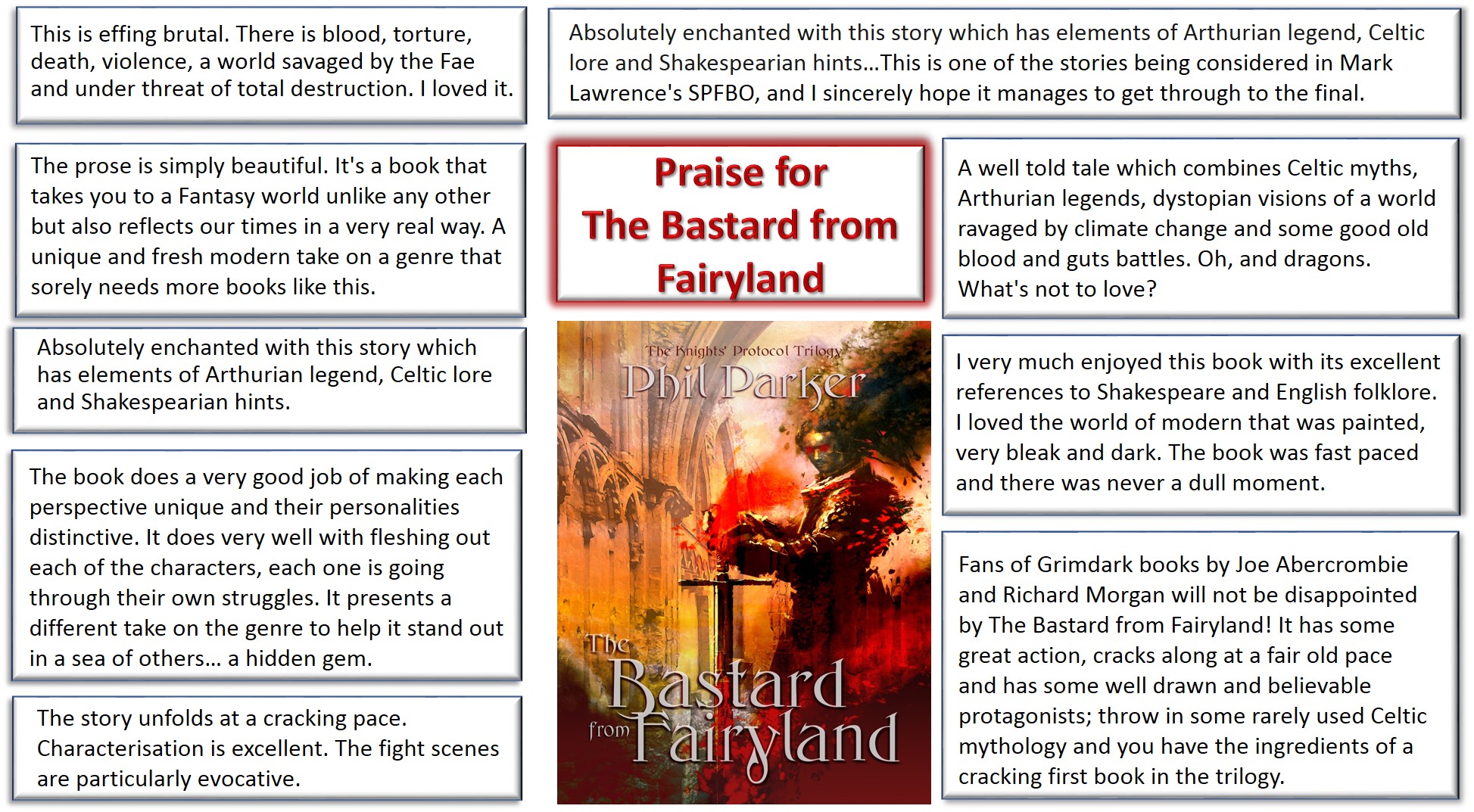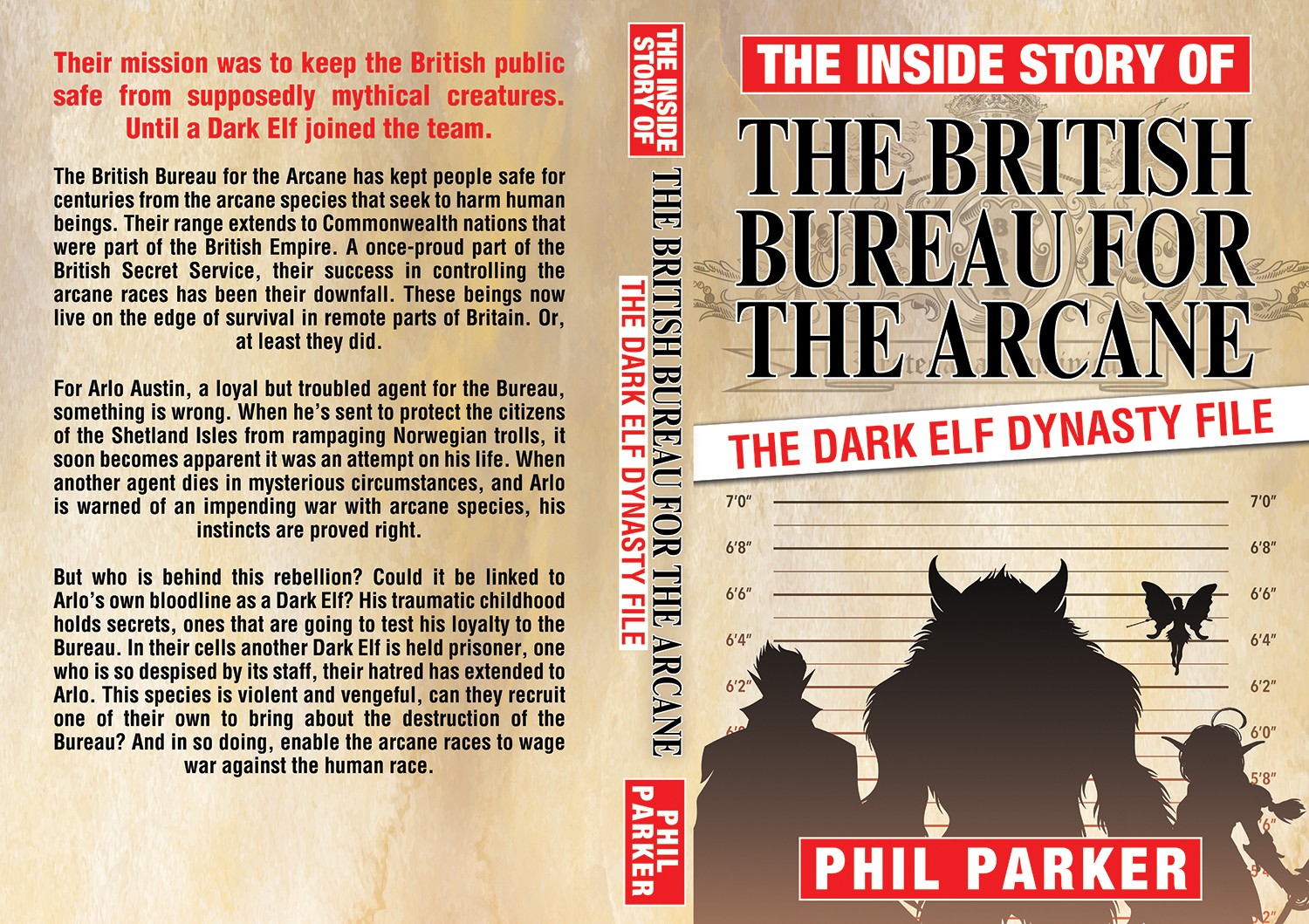We caught up with the brilliant and insightful Phil Parker a few weeks ago and have shared our conversation below.
Phil, appreciate you joining us today. Let’s start with a story that highlights an important way in which your brand diverges from the industry standard.
The traditional standard for writers is to find an agent, who, in turn, obtains a publishing deal for you. This model is slowly changing. With the arrival of Kindle Direct Publishing and others like it, writers like me can circumvent that route. As self-published authors, we retain control of our content, how it is to be published and its marketing strategy.
It does mean the writer needs to develop a ‘business head’. You will likely employ an editor and designer at the very least. You may look for others to provide mentorship and support.
Getting your book “out there” is also a challenge. You need to find people who are able to help you promote your content. All this takes time.
However, the outcome can be exciting. Importantly, you retain control of your content. Timescales and budgets are yours. Artistic decisions are yours. Perhaps most important of all – your IP (Intellectual Property) remains yours. This allows you to develop it in whatever way you choose.
All in all, self-publishing is becoming the preferred option for many writers. Self-published authors make up over 50% of Kindle’s Top 400 Books for 2023 (Source: K-Lytics, 2024).

Phil, love having you share your insights with us. Before we ask you more questions, maybe you can take a moment to introduce yourself to our readers who might have missed our earlier conversations?
My parents bought me a typewriter when I was in my mid-teens, this was the start of my writing career. I’d started writing poems and stories before then but the typewriter made it feel real. About this time I remember my English teacher got me to read out a poem I’d written to the rest of the class. It both scared and inspired me in equal measure, his praise gave me validation too. From that point on, writing turned into a form of expression that is at the core of who I am. Like many other authors, writing is an urge that needs satisfying.
At university, where I studied Drama, I wrote and performed plays. When I became a teacher, I continued writing plays for students to perform. This extended to the youth theatre I created. I even had a musical considered by a film company at one point (until Alan Parker made ‘Bugsy Malone’, which was also about gangsters!).
From the earliest age, I’ve read a lot. It meant 10 mile round trips on the bus to my local library, I was that dedicated. I have always read fantasy and science fiction, imagining new worlds where incredible things take place fed my imagination. It’s not surprising I started to write stories in these genres.
After ending my teaching career and becoming an education consultant, I had enough time to turn my attention to writing seriously. I enrolled on an online writing course which inspired me and gave me the confidence I’d lacked. Two years later I self-published my first story.
I’d developed it on the writing course but it grew and grew. It turned into The Knights’ Protocol trilogy. Looking back, I don’t know what possessed me to start my writing career with something so enormous as a trilogy. A complex story, told from the perspective of three different people, set in a dystopian world where civilisation has suffered after climate change has flooded the world.
These three stories were the result of three years of research about British folklore. The more I found, the deeper it took me. This folklore underpins every element of the story and its characters. My villains in these three books are fairies – but not the kind with wings and magic wands. They are like the fairies that frightened Shakespeare and the Elizabethans. The first book, The Bastard from Fairyland, even loosely references A Midsummer Night’s Dream. It’s main character is Robin Goodfellow, known as Puck in the play! Though, unlike that character, my Robin is a bitter, cynical warrior with a psychotic alter-ego (Puck) who is the result of a traumatic past. It’s this readiness to kill that turns him into a scapegoat for powerful and ruthless figures.
I published the trilogy six years ago and it remains my best seller. As a character, Robin is consistently someone who provokes interest in my readers. It’s why, three years ago, I published an anthology of stories which define his life story, like a prequel to The Bastard from Fairyland.
I’ve written a fantasy novel every year since then. My latest – The Inside Story of the British Bureau for the Arcane: The Dark Elf Dynasty File – is out on September 29th and available on Amazon.
This last novel defines my focus as a writer. My stories explore British folklore in varying ways, often set in British locations (eg. York, Glastonbury). There are inter-dimensional portals too. Doorways into other worlds which are frequently referenced in our folklore too. Finally, my stories all deal with “broken” characters. I like to tell stories about people whose experiences have traumatised them in some way. The story explores how they find resolution and atonement for those experiences. I think it’s the actor in me that enjoys exploring such damaged characters.
These three elements define all my stories and will continue to do so.

Let’s talk about resilience next – do you have a story you can share with us?
I mentioned earlier in this interview about the traditional publishing model and how writers seek agents and publishing deals to earn enough money to make a living. Go on any social media platform and you’ll find people bemoaning the hardships, the effort and dejection that comes from having your work rejected all the time. It’s a rite of passage. For many, it leads to surrender. People give up.
After my writing course, I believed I had a story that was original and professional. After a year of submitting it to dozens of agents and publishers I began to doubt that. My rescue came in the form of numerous authors whose books I’d read who had abandoned this traditional model. I slowly became familiar with self-publishing and decided it was the only way I would get my story ‘out there’.
I am a fairly resilient person I’ve come to realise. My family has a stubborn streak in our DNA! Self-publishing was way more than just getting published and all the additional roles, usually outsourced to employees of publishing houses, remained mine and mine alone. My commercial experiences as an educational consultant suddenly became very useful once again.
Six years on and I’m still learning. I learn from others who are successful, I research topics I need to understand, I seek out people who have knowledge I need. I try out strategies, evaluate them, tweak and adapt where necessary, develop the ones that work well. Networking is everything in this business.
All these things take time. Resilience also needs patience.

Any insights you can share with us about how you built up your social media presence?
Underestimate the power of social media at your peril. As an education consultant I’d learned this lesson early on in my career. As soon as I started my writing career, I took to social media in earnest.
As I’ve just mentioned in my previous answer, success comes from networking. It’s no use plugging your books all the time – that’s a great way for people to turn away. Networking leads to others promoting your work.
Social media audiences come in two forms for the author.
Firstly there are the book/video bloggers who read and review your work. Even then, it’s not a question of approaching just anyone. You need bloggers with a good sized audience and who are likely to appreciate what you’re trying to do with your stories. Fantasy and science fiction are genres with not only high standards – but with a readership who will tell you if they don’t like something. You need to have a thick skin as an author.
Bloggers are an integral part to your promotional strategies. They will help you with “cover reveals”, sharing the first look at the cover of your book. Their audiences will react to its artwork, title etc. and hopefully that can lead to sales. They will review your Advanced Reader Copy (ARCs) – early versions of the story before it is published. Again, their enthusiasm can be conveyed to their readers/followers and that may result in sales.
Secondly, there are other authors. For me, this is a real joy. I get to chat on an equal footing, with other authors. Writing can be a lonely business. It helps to share your worries, problems, successes, random ideas, with others in the business. I’ve set up a couple of author groups for this purpose. There is so much fun to be had talking about books and writing with people who are equally as enthusiastic about books and writing.
Between these two sources, there are chances to take part in interviews (written & online), podcasts too. You get invited to attend events like book festivals and organisations connected to the genres. Your influence expands, so does your network. The greater the expansion, the more you learn, the more established you become as an author – which hopefully leads to increased sales.
Contact Info:
- Website: https://www.philparker-fantasywriter.com/
- Instagram: https://www.instagram.com/philparkerfantasyauthor/
- Facebook: https://www.facebook.com/philparkerfantasywriter
- Twitter: https://x.com/PhilSpeculates
- Youtube: https://www.youtube.com/@philparkerfantasyauthor
- Other: https://linktr.ee/phil_parkerhttps://www.threads.net/@philparkerfantasyauthor

Image Credits
Ken Dawson, Creative Covers


